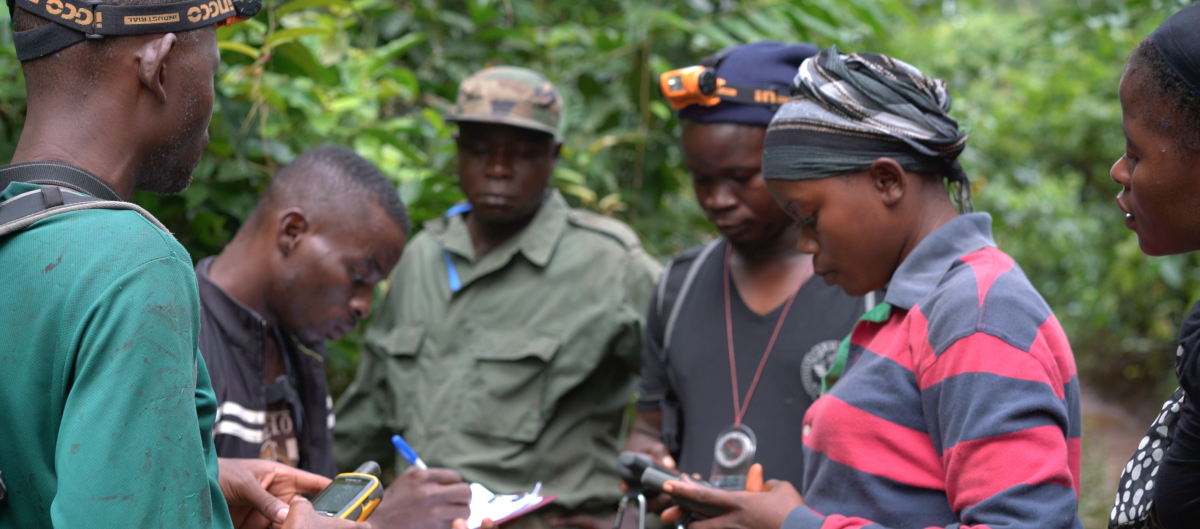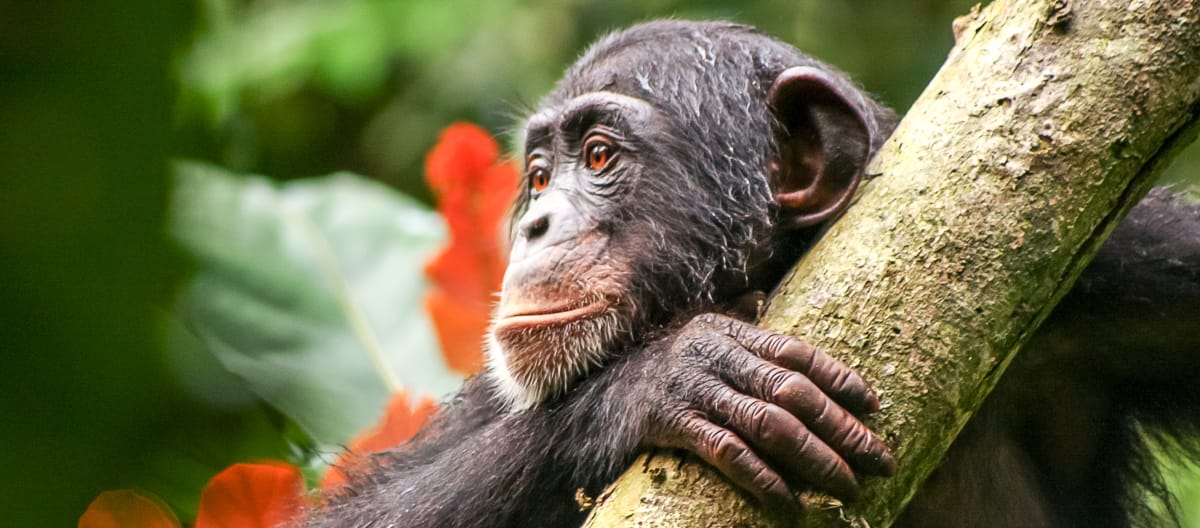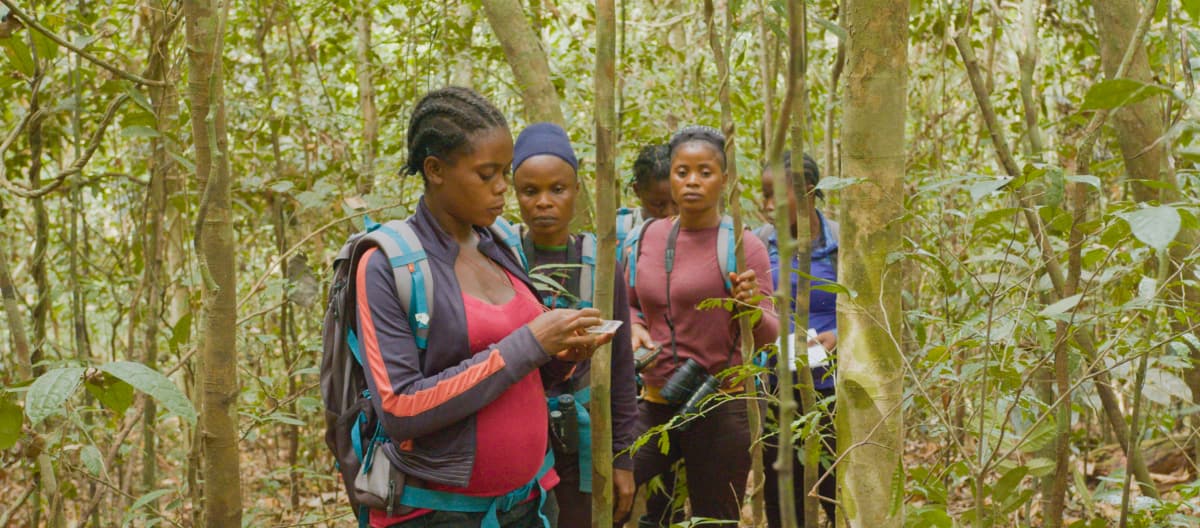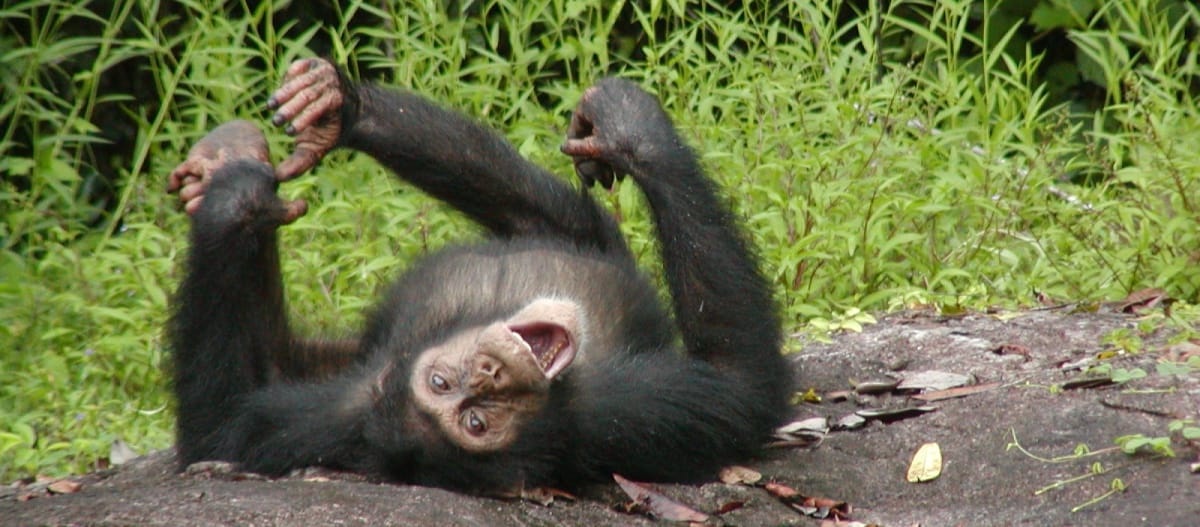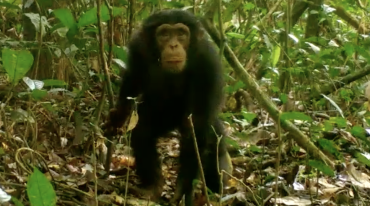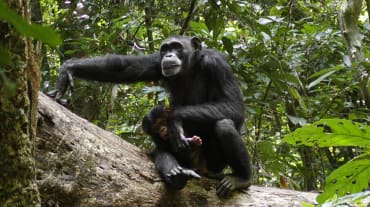Guardians of the jungle: protecting chimpanzee habitat
Chimpanzees are our closest relatives, yet we have pushed them to the brink of extinction. Preserving their habitat is a crucial part of protecting them. Conservation efforts can only succeed in close cooperation with local communities, and women are playing a key role in this work.
Project Overview
Project FocusWildlife
Project Objective Eco-Guards to protect the habitat of chimpanzees
Activities training Eco-Guards, providing environmental education
Patrolling Liberia’s Grebo-Krahn National Park used to be a man’s job. But now, more and more women are coming forward to serve as Eco-Guards. A fundamental change is taking place in Liberian society: Women’s status and independence are on the rise.
Female Eco-Guards like Felicia Keyne and Mathaline Garley are true guardians of the jungle. Her family benefits from her wages, and the rainforest from her dedication. The guards patrol the forest that surrounds the village of Druwar, collecting data on wildlife, gathering evidence of poaching or illegal gold mining, and reporting suspicious activities to the authorities. Felicia and Mathaline work together with male colleagues in equal teams.
The Wild Chimpanzee Foundation (WCF)
Researchers of the Wild Chimpanzee Foundation – longtime partners of Rainforest Rescue – are working to designate the animals’ habitat, and thus large areas of rainforest, as protected areas in close cooperation with local communities. As Eco-Guards, villagers like Felicia and Mathaline are actively contributing to nature conservation in the Grebo-Krahn and Sapo National Parks.
Conservationists face a great challenge: The chimpanzee population of western Africa is estimated at only 52,800 individuals. Within the past twenty years, their population has plummeted by 80 percent. Luckily, there are still virtually untouched rainforest areas between Côte d’Ivoire and Guinea that provide a habitat for them.
An important part of the Eco-Guards’ mission takes place in the villages, where they sensitize local people to the beauty and fragility of the rainforests. The number of endangered animal species living in Grebo-Krahn National Park – chimpanzees, forest elephants, leopards and many more – underscores how vital this is. While Liberia’s forests are among the most biodiverse in the world, the country has only three national parks. Founded in 2017, Grebo-Krahn is the most recent among them.
Setting up a national park is a balancing act between conserving nature and protecting the rights of local people. If done wisely, such protected areas can even contribute to social change by empowering women. This is exactly what is happening in Liberia: Of the 28 Eco-Guards in Grebo-Krahn National Park, ten are currently women.
Her former livelihood: poaching
Before she joined the Eco-Guards, Mathaline Garley was involved in the illegal bushmeat trade. But switching sides has enriched her life: “I'm no longer someone who sells bushmeat, but a teacher in service to the environment,” she says.
Her colleague Felicia Kyne pays the school fees for her younger siblings from the money she earns as an Eco-Guard. She sees herself on equal footing with the men of the village: “Anything they can do, I dare to do as well,” she says confidently.
The female Eco-Guards in Liberia are ushering in a change in their traditionalist society: The guardians of the forest are also the social vanguard in the villages.
Your donation will not only help secure the habitat of chimpanzees, pygmy hippos and forest elephants, but also help women like Mathaline and Felicia build better lives for themselves and their families.











